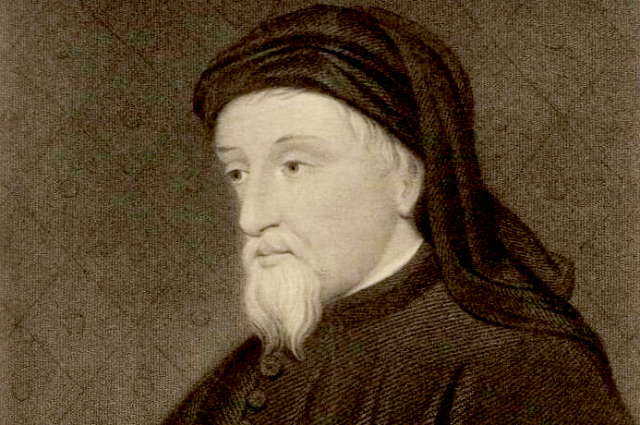Geoffrey Chaucer is often hailed as the "Father of English literature." His contributions to the literary world in the 14th century laid the groundwork for the development of English as a legitimate language of art and storytelling. Best known for "The Canterbury Tales," Chaucer's body of work reflects a profound understanding of human nature and social dynamics. His innovative use of the English vernacular, intricate characterizations, and narrative techniques have ensured his lasting impact on literature. He was so famous that an entire age is named after him, that is, The Age of Chaucer in English Literature. John Dryden called him the Father of English literature. Let's explore his life in this blog.
- Blogs
- British-literature
- Geoffrey-chaucer-the-father-of-english-literature-664c3b37bdccdd0001d2ed5d
Geoffrey Chaucer: The Father of English Literature
British Literature • 21 May, 2024 • 27,000 Views • ⭐ 4.8
Written by Shivani Chourasia

Early Life

Geoffrey Chaucer was born around 1343, likely in London. His father, John Chaucer, was a prosperous wine merchant, which afforded Geoffrey a comfortable upbringing and access to a good education. The Chaucer family had connections to the court, providing young Geoffrey with opportunities to interact with influential figures and ideas of the time.
Chaucer's education was extensive for the period. He was fluent in several languages, including Latin, French, and Italian, all of which influenced his writing. This multilingual ability allowed him to draw from a wide range of literary traditions and styles, enriching his works.
Career and Public Service

Chaucer's career was diverse and prestigious. He entered the service of the royal court as a page to Elizabeth, Countess of Ulster, around 1357. This early position exposed him to the upper echelons of society and the political and cultural life of England. He later fought in the Hundred Years' War, was captured by the French in 1360, and subsequently ransomed.
Throughout his life, Chaucer held various positions, including serving as a diplomat, a comptroller of customs for the port of London, and Clerk of the King's Works. These roles not only provided financial stability but also enriched his understanding of different societal classes and occupations. His experiences in these roles often found their way into his literary works, providing a rich tapestry of characters and settings.
Literary Works: Early Works

Chaucer's literary career can be divided into several phases, each marked by distinct works that showcase his evolving style and thematic focus. Chaucer's early works include translations and adaptations of existing literary texts. These works helped him develop his poetic voice and narrative skills. Notable early works include:
The Book of the Duchess (circa 1368-1372)

An elegy for Blanche of Lancaster, this poem is one of Chaucer's earliest major works. It tells the story of a dreamer who encounters a knight mourning the loss of his lady. The poem explores themes of loss, grief, and consolation, reflecting Chaucer's ability to blend personal emotion with allegorical elements. Through the dream-vision format, Chaucer presents a heartfelt tribute to Blanche, Duchess of Lancaster, capturing the depth of sorrow and the desire for solace. The knight's lament and the dreamer's reflections provide a deeply moving meditation on love and loss.